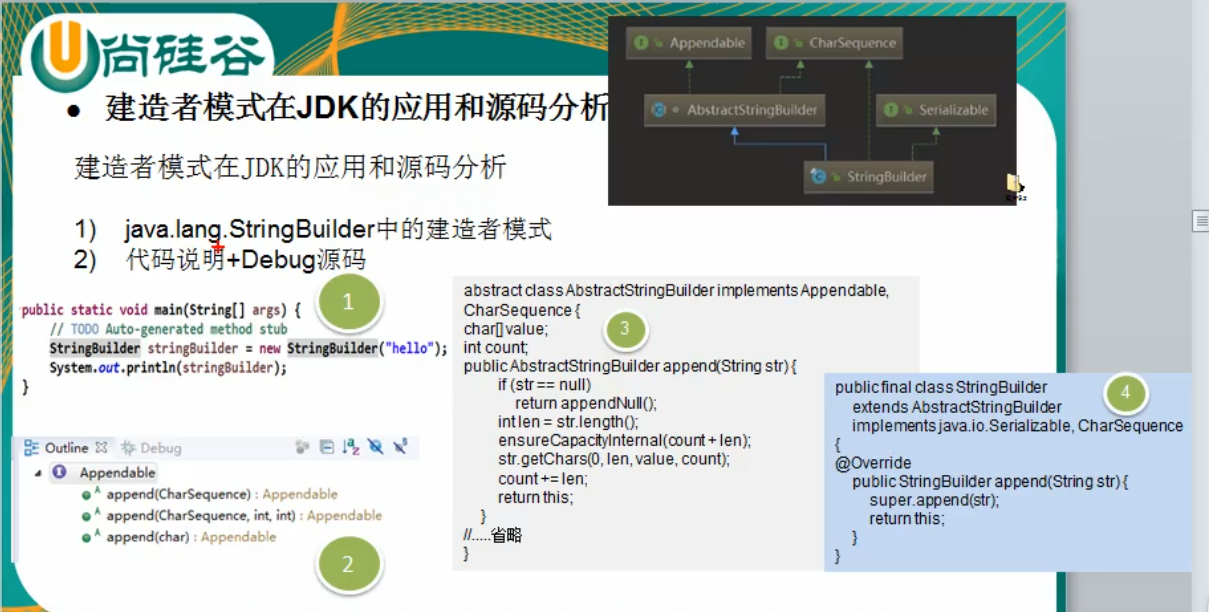建造者模式
* <p>Unless otherwise noted, passing a {@code null} argument to a constructor
* or method in this class will cause a {@link NullPointerException} to be
* thrown.
*
* @author Michael McCloskey
* @see java.lang.StringBuffer
* @see java.lang.String
* @since 1.5
*/
public final class StringBuilder
extends AbstractStringBuilder
implements java.io.Serializable, CharSequence
{
/** use serialVersionUID for interoperability */
static final long serialVersionUID = 4383685877147921099L;
/**
* Constructs a string builder with no characters in it and an
* initial capacity of 16 characters.
*/
public StringBuilder() {
super(16);
}
/**
* Constructs a string builder with no characters in it and an
* initial capacity specified by the {@code capacity} argument.
*
* @param capacity the initial capacity.
* @throws NegativeArraySizeException if the {@code capacity}
* argument is less than {@code 0}.
*/
public StringBuilder(int capacity) {
super(capacity);
}
追进去
* thrown.
*
* @author Michael McCloskey
* @author Martin Buchholz
* @author Ulf Zibis
* @since 1.5
*/
abstract class AbstractStringBuilder implements Appendable, CharSequence {
/**
* The value is used for character storage.
*/
char[] value;
/**
* The count is the number of characters used.
*/
int count;
/**
* This no-arg constructor is necessary for serialization of subclasses.
*/
AbstractStringBuilder() {
}
我们在查看源码的时候,有可能他在使用的时候,设计模式的思想很相似,但是有可能不完全是一样的,不能完全符合类图中的
源码使用者并不知道他在使用这个设计模式,所以嗯
建造者模式在JDK的应用和源码分析
源码中建造者角色分析
Appendable接口定义了多个append方法(抽象方法),即Appendable为抽象建造者,定义了抽象方法,他其实就已经是一个抽象建造者了
有建造者就肯定会有具体的建造者实现类,但是->
AbstractStringBuilder 实现了Appendable接口方法,这里的AbstractStringBuilder 已经是建造者了,只是不能实例化了
哈哈哈,写jdk这个哥们他太牛了,他已经在无形中写出了这种设计模式,只是他自己不知道而已,这种设计模式的总结是在以后才提出来的,所以他不已经很标准嗯
- StringBuilder即充当了指挥者角色,同时充当了建造者模式,建造方法的实现是由AbstractStringBuilder 完成,而我们StringBuilder只是继承了AbstractStringBuilder
- 人家写源码的时候,没有几个人设计模式,有可能只是你这么认为的,作者不是这么想的呢还兴许

